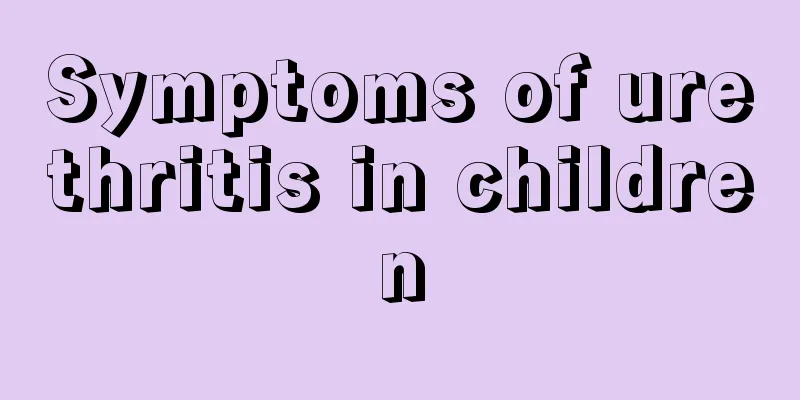Why does the child sweat a lot on his head?

|
Sweating is a normal and common phenomenon in our human body, and proper sweating can also play a certain role in the detoxification of our body. However, many mothers have found that children sweat more on their heads than adults, and even when the weather is not hot, children sweat relatively more on their heads. So why do children sweat so much on their heads? Let me share with you guys how to understand it. Excessive sweating in children is mainly seen in the following three situations. First: the most common one is calcium deficiency, which can be diagnosed by trace elements or bone density tests. Second: In traditional Chinese medicine, excessive sweating in children is more common in children with spleen deficiency. Third: It may be a normal phenomenon. The secretion of sweat glands is controlled by the autonomic nerve (vagus nerve). After falling asleep, the vagus nerve is excited and causes excessive sweating, usually on the head and face, but it will be relieved within one or two hours after falling asleep. Excessive sweating is not caused by calcium deficiency, but by vitamin D deficiency. It may also be due to a high metabolic rate. As long as weight and height growth are normal, it won't have much impact. If necessary, blood alkaline phosphatase or wrist X-ray can be performed to check for active rickets. There are many reasons why children sweat excessively when sleeping, both physiological and pathological. Physiological hyperhidrosis is caused by hot weather, high room temperature, excessive clothing or too thick quilts. Some parents like to feed their children a bottle of milk before going to bed. After feeding, the child falls asleep quietly. However, this is the stage of heat production after feeding, so the child often sweats profusely. This type of sweating is caused by the body's regulation of body temperature. Sweating often occurs more when just falling asleep and then gradually decreases. Because children have an active metabolism, high skin water content, more microvessels, and immature autonomic nerves, they sweat a lot, which is completely normal. Pathological hyperhidrosis occurs when a person sweats a lot during the entire sleep process. Children with rickets begin to sweat profusely after falling asleep, especially on the head, which can soak the pillow or pillowcase, and are accompanied by baldness on the pillow and crying. Children with active tuberculosis not only sweat in the first half of the night, but also often sweat in the second half of the night and before dawn, which is called night sweats. At the same time, children may have symptoms such as low fever, cough, weight loss, weakness, and flushed face. I believe mothers already understand why children sweat a lot on their heads. In fact, some abnormal physiological phenomena of the human body may be signals of the existence of diseases, including for adults. In this case, it is necessary to go to a regular tertiary hospital for examination and treatment as soon as possible, and also pay attention to developing good living habits in daily life. I wish you good health. |
<<: What happens when a newborn baby suddenly cries while sleeping?
>>: Who should be screened for newborn fundus?
Recommend
Is it painful for children to change their teeth?
When children reach a certain age, their deciduou...
What to do if your child has foam at the mouth
Children are in the process of growing up, and th...
What should I do if my 6-year-old child has tooth decay pain?
Even if there are adults around who constantly re...
10 Mistakes When Giving Medicine to Your Baby
We often say that "medicine is three parts p...
Is it good for children to sleep on their stomachs?
We know that sleep plays a very important role in...
Understanding Mycoplasma Infection in Children
This infection has an incubation period and may n...
Introduction to some situations of neonatal jaundice and sun exposure
Neonatal jaundice usually occurs after birth, so ...
The main reason for baby's bone cracking
I believe every mother cares more about the baby&...
What to do if your baby is suffering from internal heat and constipation? Some habits can improve it
Since the baby's digestive system is not yet ...
What medicine should be used for redness and swelling of mosquito bites in children?
The summer when mosquitoes are rampant can bring ...
Yellow on girls' underwear
The most common reason why women's underwear ...
How long does a child's menstrual period usually last?
We know that girls will have their first menstrua...
Can children eat tiger tail wheel?
The tiger wheel is a plant that is now also used ...
What causes dull pain in the left lower abdomen in children?
Children are most likely to suffer from abdominal...
Treatment of foaming at the mouth of a newborn
We may have seen many children foaming at the mou...









